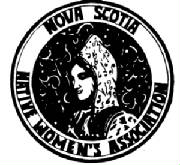|
|
|
|
1985 LEGISLATION AN ACT TO AMEND THE INDIAN ACT WAS PASSED. DID THIS HELP OR CAUSE MORE PROBLEMS?
MANY WOULD SAY THIS ACT ONLY CONFUSED THINGS MORE AND DID NOT DO JUSTICE TO THE WOMEN WHO LOST THEIR RIGHTS.
BROTHERS AND SISTERS HAVE DIFFERENT ABILITY TO PASS ON THEIR STATUS. BILL C- 31 HAS NOT LIVED UP TO ITS EXPECTATIONS! The three principles that guided the amendments to the Indian Act were: removal of discrimination; restoring status and membership rights; and increasing control of Indian bands over their own affairs. The more we examine Bill C-3 1 and the effects it has had on the Aboriginal peoples of Canada,
the more we are brought to realize how little things have changed after all. The federal government has no business telling Indian people whether they are Indian or not.
It did this under the Old Indian Act, with disastrous consequences for hundreds of thousands of Indian people; and it is doing
it again with Bill C-31. Once again, the consequences will be disastrous. Within the next twenty years, the new Status rules will result
in the disqualification of hundred's of thousands of descendants of today's Status Indians. They will start reducing the Status
Indian population, certainly off-reserve, but quite likely on reserve as well. And they will lead to a new explosion of the
Non-Status Indian population, fed this time by both male and female unions with Non-Indian partners. The federal government has no similar rule to determine who is an Inuit or who is Metis or who is French Canadian The reason it has such a rule for Indians should be recognized for what it is: a freak of history, completely unjustifiable
in the contemporary world. For close to 20 years,
BCGEU Vice President Lorene Oikawa with Sharon McIvor In June 2007, McIvor won a groundbreaking BC Supreme Court judgment that stands to restore equal Indian
status for 200,000 or more Aboriginal women and their descendants. Judge Carol Ross has ruled that ongoing discrimination in the Indian Act violates the Canadian
Charter of Rights and Freedoms. She has ordered the Canadian government to remove sex discrimination from the determination
of Indian status, and to restore equal Indian status to First Nations women and their descendants. The federal government is appealing this ruling, while eliminating funding for the Court Challenges
program that would financially assist McIvor with taking her case forward. The BC Government and Service Employees’ Union supports McIvor’s efforts, and urges other
unions and allies to contribute resources to assist this case through its next stages in the Court of Appeal and beyond. McIvor is also challenging the way in which the Indian Act continues to give preference to those
who trace their Indian identity from male ancestors rather than female ancestors. The history of the Indian Act is
that an Indian was defined by the colonizing government as "a male Indian, the wife of a male Indian or the child of a male
Indian." This preference for the male line is continued in the current Indian Act because descendants of female Indians
may have no status or diminished status, while descendants of male Indians have full status. McIvor is disputing the Indian Act under section 15 of the Charter
on the grounds it discriminates against First Nations women on the basis of sex and marital status. |
|
